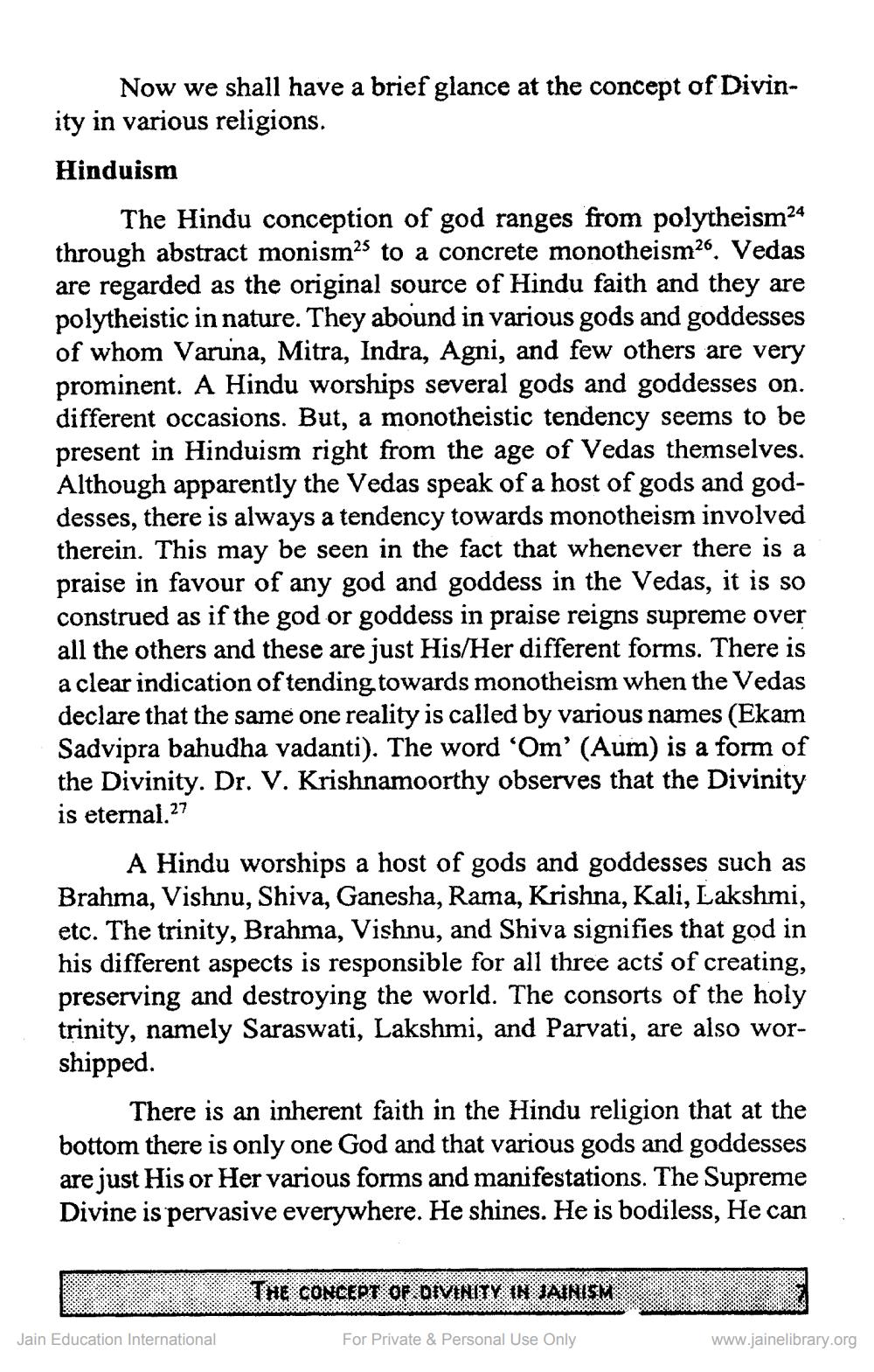________________
Now we shall have a brief glance at the concept of Divinity in various religions. Hinduism
The Hindu conception of god ranges from polytheism24 through abstract monism2s to a concrete monotheism26. Vedas are regarded as the original source of Hindu faith and they are polytheistic in nature. They abound in various gods and goddesses of whom Varuna, Mitra, Indra, Agni, and few others are very prominent. A Hindu worships several gods and goddesses on. different occasions. But, a monotheistic tendency seems to be present in Hinduism right from the age of Vedas themselves. Although apparently the Vedas speak of a host of gods and goddesses, there is always a tendency towards monotheism involved therein. This may be seen in the fact that whenever there is a praise in favour of any god and goddess in the Vedas, it is so construed as if the god or goddess in praise reigns supreme over all the others and these are just His/Her different forms. There is a clear indication of tending towards monotheism when the Vedas declare that the same one reality is called by various names (Ekam Sadvipra bahudha vadanti). The word 'Om' (Aum) is a form of the Divinity. Dr. V. Krishnamoorthy observes that the Divinity is eternal.27
A Hindu worships a host of gods and goddesses such as Brahma, Vishnu, Shiva, Ganesha, Rama, Krishna, Kali, Lakshmi, etc. The trinity, Brahma, Vishnu, and Shiva signifies that god in his different aspects is responsible for all three acts of creating, preserving and destroying the world. The consorts of the holy trinity, namely Saraswati, Lakshmi, and Parvati, are also worshipped.
There is an inherent faith in the Hindu religion that at the bottom there is only one God and that various gods and goddesses are just His or Her various forms and manifestations. The Supreme Divine is pervasive everywhere. He shines. He is bodiless, He can
THE CONCEPT OF DIVINITY IN JAINISM
Jain Education International
For Private & Personal Use Only
www.jainelibrary.org




